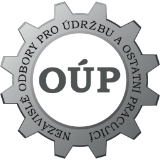Dear colleagues,
we have concluded a part of the explanation with the company, whether to partially release the chairperson OÚP or not to release him, and send the final decision and our statement to the company, see the following text.
Good morning,
thank you for your answers to my questions. However, I do not consider your answers sufficient at some disputable points. Especially, I consider very problematic and potentially the trade union threatening to set the rules for the releasing of trade union chairmen according to § 203 para. a), b) and c) of Act No. 262/2006 Coll. (‚the Rules‘) has been established and, where is possibility of further changes on the basis of your unilateral and, in principle, not explicable decision, in which neither the rules nor the safeguards against their changes to the detriment of trade unions are in effect at any time and with immediate effect. The proposed text of the agreement with the rules, is an agreement only by form, because your current practice leads to a situation where I have only two options – to comply your proposal unconditionally or to withdraw from it completely and remain a completely unoccupied official.
Thus, from a legal point of view, it is, in fact, a contracting process approaching in its base of contracting in an adhesion manner, which I regard as another way of continuing pressure of my person, as I have already informed in my previous reply. In this way, I am also considering taking further legal steps to protect trade union activities. In this situation, I see that the proposed rules for releasing endanger my position as a member of the TPCA trade union committee. In the rules, for example, it is contrary to the law (and I have said this in detail in my previous report, to which I refer) in case of my release beyond the weekly fund, the trade union is obliged to pay the salary refund to the trade union functionary for the doing of trade union activity for the part that exceeded the set weekly fund.
Therefore, after considering these conditions, I have decided and this letter will inform you that between April and June 2019 I will remain as a not released functionary and after verification of how the rules will be applied in the practice of the daily organization of TPCA, I consider whether I will join this model of partial releasing from July 2019, or even then evaluate that it is more advantageous for me to keep the status of an not released trade union official in order to achieve the aims of protecting the collective rights of TPCA employees. Of course, I will also take into account the possible correction of TCPA rules after evaluating the test mode as announced in your response.
In this context, I would also like to say you again that the Labor Code makes no difference between released and not released trade unionists and does restrict the latter from exercising the function of a member of a trade union body neither in time nor in fact issues in any way. As a not released functionary I am limited only by the statutory rules by which (and only by them) I will continue to lead my office as a not released union functionary.
Other orders and instructions do not fundamentally interfere with my office, and I will in no way take them into account in the run of my office, what also applies to your approval mechanism if the union activity during my working hours will be needed, see below.
As a trade union member is an obstacle to work under Section 203 of the Labor Code (which is independent of my and your will), I will proceed in accordance with Section 206 of the Labor Code so that, in case of need to be released from work for trade union I will notify my supervisor of this activity and then, if necessary, prove it to me as a result of his request.
Therefore I advise in advance that the occurrence of this obstacle is not subject to the authorization of the employer, as it is an objective event that cannot be authorized or prohibited because it occurs involuntarily. Put simply, the obstacle to work either exists or not. Consequently, I would like to conclude by saying that in the above-mentioned context, I will not ask for permission or wait for the approval of the superior, since such a requirement is illegal for the objective type of the obstacle to work.
At the same time, I would like to ask you in advance to abstain from the procedure so notified to me. Otherwise, I will have to evaluate it as sanctioning an employee (in addition to being a functionary) for claiming his rights, which is a prohibited procedure by Section 346b (4) of the Labor Code and, if appropriate, to consider further steps in order to prevent such inadmissible conduct (if it is noted against to this person).
Best regards,
Petr Bíba

